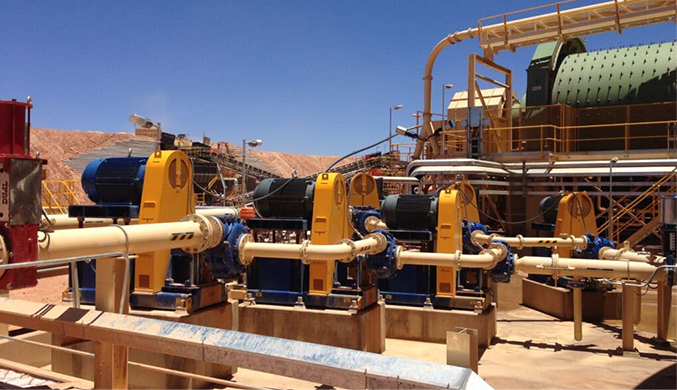English
- Afrikaans
- Albanian
- Amharic
- Arabic
- Armenian
- Azerbaijani
- Basque
- Belarusian
- Bengali
- Bosnian
- Bulgarian
- Catalan
- Cebuano
- Corsican
- Croatian
- Czech
- Danish
- Dutch
- English
- Esperanto
- Estonian
- Finnish
- French
- Frisian
- Galician
- Georgian
- German
- Greek
- Gujarati
- Haitian Creole
- hausa
- hawaiian
- Hebrew
- Hindi
- Miao
- Hungarian
- Icelandic
- igbo
- Indonesian
- irish
- Italian
- Japanese
- Javanese
- Kannada
- kazakh
- Khmer
- Rwandese
- Korean
- Kurdish
- Kyrgyz
- Lao
- Latin
- Latvian
- Lithuanian
- Luxembourgish
- Macedonian
- Malgashi
- Malay
- Malayalam
- Maltese
- Maori
- Marathi
- Mongolian
- Myanmar
- Nepali
- Norwegian
- Norwegian
- Occitan
- Pashto
- Persian
- Polish
- Portuguese
- Punjabi
- Romanian
- Russian
- Samoan
- Scottish Gaelic
- Serbian
- Sesotho
- Shona
- Sindhi
- Sinhala
- Slovak
- Slovenian
- Somali
- Spanish
- Sundanese
- Swahili
- Swedish
- Tagalog
- Tajik
- Tamil
- Tatar
- Telugu
- Thai
- Turkish
- Turkmen
- Ukrainian
- Urdu
- Uighur
- Uzbek
- Vietnamese
- Welsh
- Bantu
- Yiddish
- Yoruba
- Zulu
Telephone: +86 13120555503
Email: frank@cypump.com
Sep . 22, 2024 12:45 Back to list
sewage grinding pump
Understanding Sewage Grinding Pumps An Essential Component for Wastewater Management
Sewage grinding pumps play a crucial role in the effective management of wastewater in both residential and commercial settings. These specialized pumps are designed to handle the challenging task of moving sewage efficiently to treatment facilities or municipal systems. Unlike standard sewage pumps, grinding pumps are equipped with a high-speed grinder that reduces solid waste into a slurry, making it easier to transport.
The Necessity of Sewage Grinding Pumps
Wastewater often contains various solid materials, including food waste, paper, plastics, and other debris. These solids can lead to clogs and blockages in conventional pumps and sewage systems. This is where sewage grinding pumps come into play. By shredding solid materials, these pumps ensure the smooth flow of wastewater through pipes without the risk of jams, thereby reducing maintenance costs and prolonging the life of the sewage system.
How Sewage Grinding Pumps Work
Sewage grinding pumps are engineered with a grinding mechanism that consists of rotating blades. Once the wastewater enters the pump, these blades chop the solid particles into smaller pieces. The process is similar to that of a garbage disposal, but on a larger scale. The grinder is typically made of durable materials, ensuring it can withstand the tough environment inside sewer systems.
After the waste is ground down to a manageable size, the pump moves the slurry through a discharge pipe. The design of the pump allows it to move waste over considerable distances and vertically, which is especially important in multi-story buildings where wastewater needs to be transported upwards to reach the main sewer line.
Applications and Benefits
sewage grinding pump

Sewage grinding pumps are beneficial in various applications, including residential homes, commercial buildings, and industrial settings. In homes where gravity drainage is not feasible, these pumps can be used in basement bathrooms, laundry rooms, and kitchens. In commercial settings, they are often utilized in restaurants, hotels, and shopping centers where large volumes of wastewater are produced.
The primary benefits of sewage grinding pumps include
1. Efficient Waste Management By grinding solids into a fine slurry, these pumps prevent clogging and ensure efficient transportation of wastewater.
2. Cost-Effective While the initial investment may be higher than regular pumps, they save money in the long run by minimizing blockages, repairs, and system downtimes.
3. Versatility Sewage grinding pumps are adaptable to various settings, whether residential, commercial, or industrial.
4. Durability and Reliability Designed to handle tough conditions, these pumps are built to last, providing reliable service over many years.
Conclusion
In the realm of wastewater management, sewage grinding pumps are indispensable tools that enhance the efficiency and reliability of sewage systems. By effectively managing solids in wastewater, they not only protect infrastructure from damage but also contribute to a cleaner and safer environment. As urbanization and population growth continue to rise, the significance of these pumps will only increase, underscoring the need for effective wastewater solutions in our communities. If you're considering a pump for your home or business, a sewage grinding pump may be the perfect fit for maintaining a robust and clog-free sewage system.
-
Horizontal Split Case Pump with GPT-4 Turbo | High Efficiency
NewsAug.01,2025
-
ISG Series Pipeline Pump - Chi Yuan Pumps | High Efficiency, Durable Design
NewsAug.01,2025
-
Advanced Flue Gas Desulfurization Pump with GPT-4 Turbo | Durable & Efficient
NewsJul.31,2025
-
ISG Series Vertical Pipeline Pump - Chi Yuan Pumps | Advanced Hydraulic Design&Durable Construction
NewsJul.31,2025
-
ISG Series Vertical Pipeline Pump - Chi Yuan Pumps | Energy Efficient & Low Noise
NewsJul.31,2025
-
pipeline pump - Chi Yuan Pumps Co., LTD.|High Efficiency&Low Noise
NewsJul.31,2025










